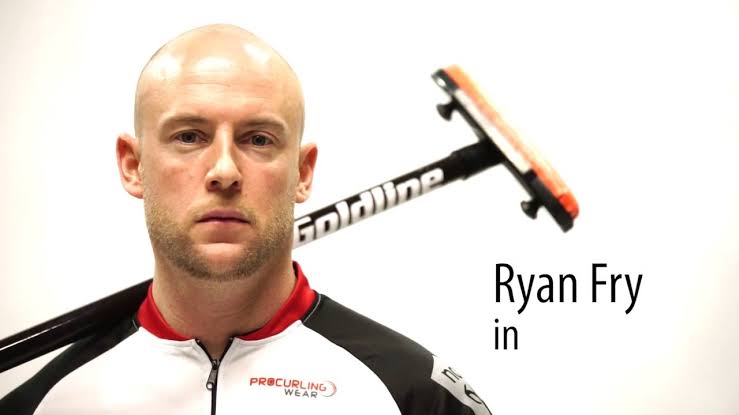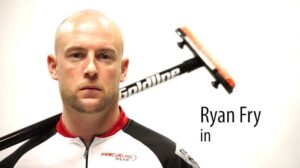
RYAN FRY FACES SUSPENSION AND COMMUNITY SERVICE AFTER PLEADING GUILTY TO DISORDERLY CONDUCT.

Canadian curler Ryan Fry is facing
significant consequences after pleading
guilty to disorderly conduct, which has
resulted in a six-month suspension from
competitive curling and a requirement to
complete 50 hours of community service.
The charges are connected to an incident
that occurred during a curling
tournament in Red Deer, Alberta, where
Fry reportedly was intoxicated and
caused a disturbance.
Fry, renowned for his impressive curling
career including three Brier
championships, has expressed deep
remorse for his behavior. In a public
apology, Fry acknowledged the impact of
his actions, stating, “I let my teammates,
fans, and the sport down. I’m committed
to making amends and earning back the
trust of the curling community.” This
statement reflects Fry’s recognition of
the seriousness of the incident and his
intention to rectify his mistakes.
The suspension is immediate, meaning
Fry will be barred from participating in
competitive curling events until January
2025. This period of exclusion will likely
impact his standing in the sport and his
preparation for future competitions.
Additionally, Fry is mandated to
complete 50 hours of community service
within the next year, which will require
him to contribute to various community
initiatives and demonstrate his
commitment to positive behavior.
Curling Canada CEO Katherine
Henderson addressed the situation,
emphasizing the organization’s
commitment to upholding high
standards for athletes. “We take
incidents like this seriously and hold our
athletes to high standards. We’re glad
Ryan is taking responsibility for his
actions and look forward to his return to
competition,” Henderson stated. Her
remarks underscore the importance of
maintaining integrity and
professionalism within the sport, and the
organization’s hope for Fry’s
rehabilitation and eventual return to
competitive play.
This incident highlights the broader issue of conduct and professionalism in sports. It serves as a reminder of the expectations placed on athletes, both on and off the field. Fry’s situation also raises questions about the measures in place to prevent and address such behavior, and how organizations handle disciplinary actions to balance accountability with support for personal growth.
In the curling community, Fry’s actions
and subsequent suspension are being
closely watched. His return to the sport
will likely be accompanied by heightened
scrutiny and a need to rebuild his
reputation. The community service
component of his sentence aims not only
to address the immediate fallout but also
to facilitate a broader contribution to
society, reflecting the sport’s values and
expectations for its athletes.
As Fry navigates this challenging period,
the curling community will be observing
his efforts to make amends and his
progress toward regaining his standing
in the sport. His future actions and
conduct will be crucial in determining
how he is received upon his return and
whether he can restore the trust and
respect of his peers and fans.







